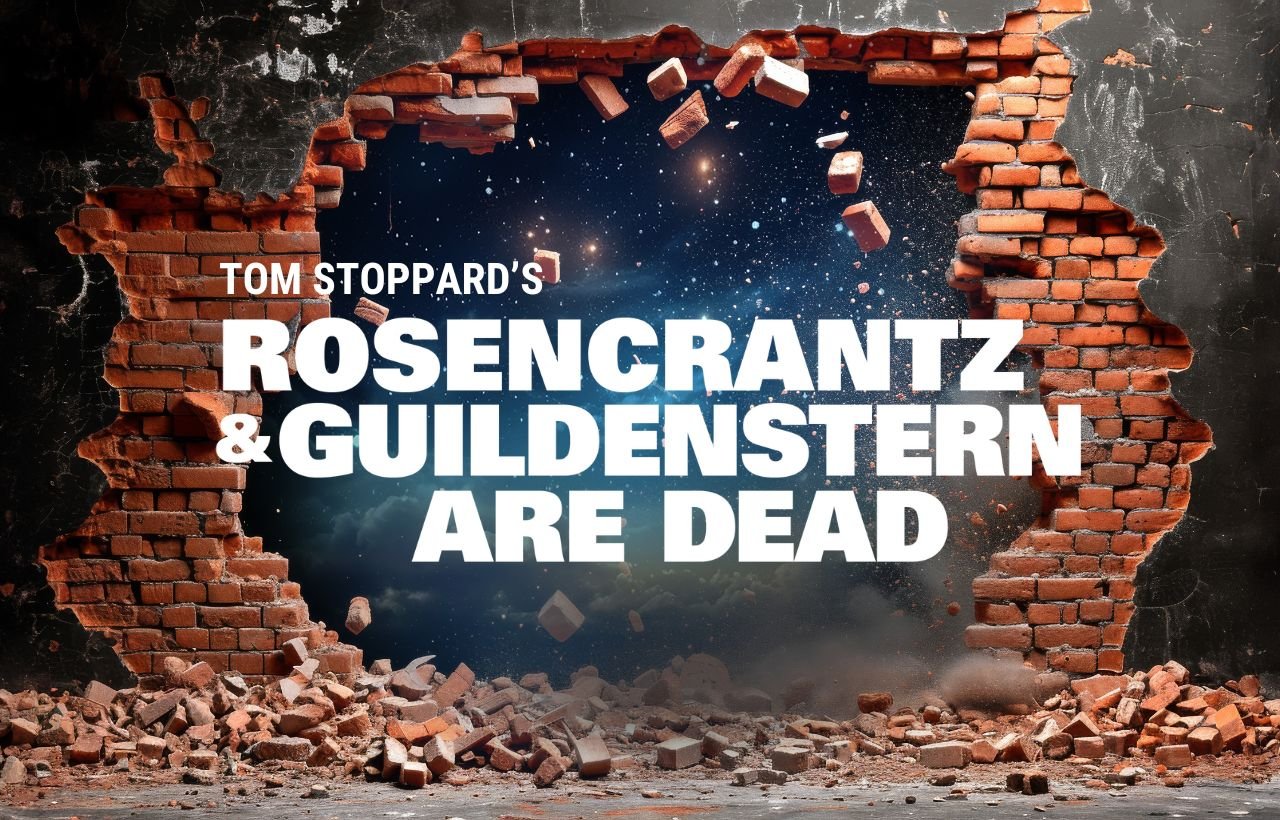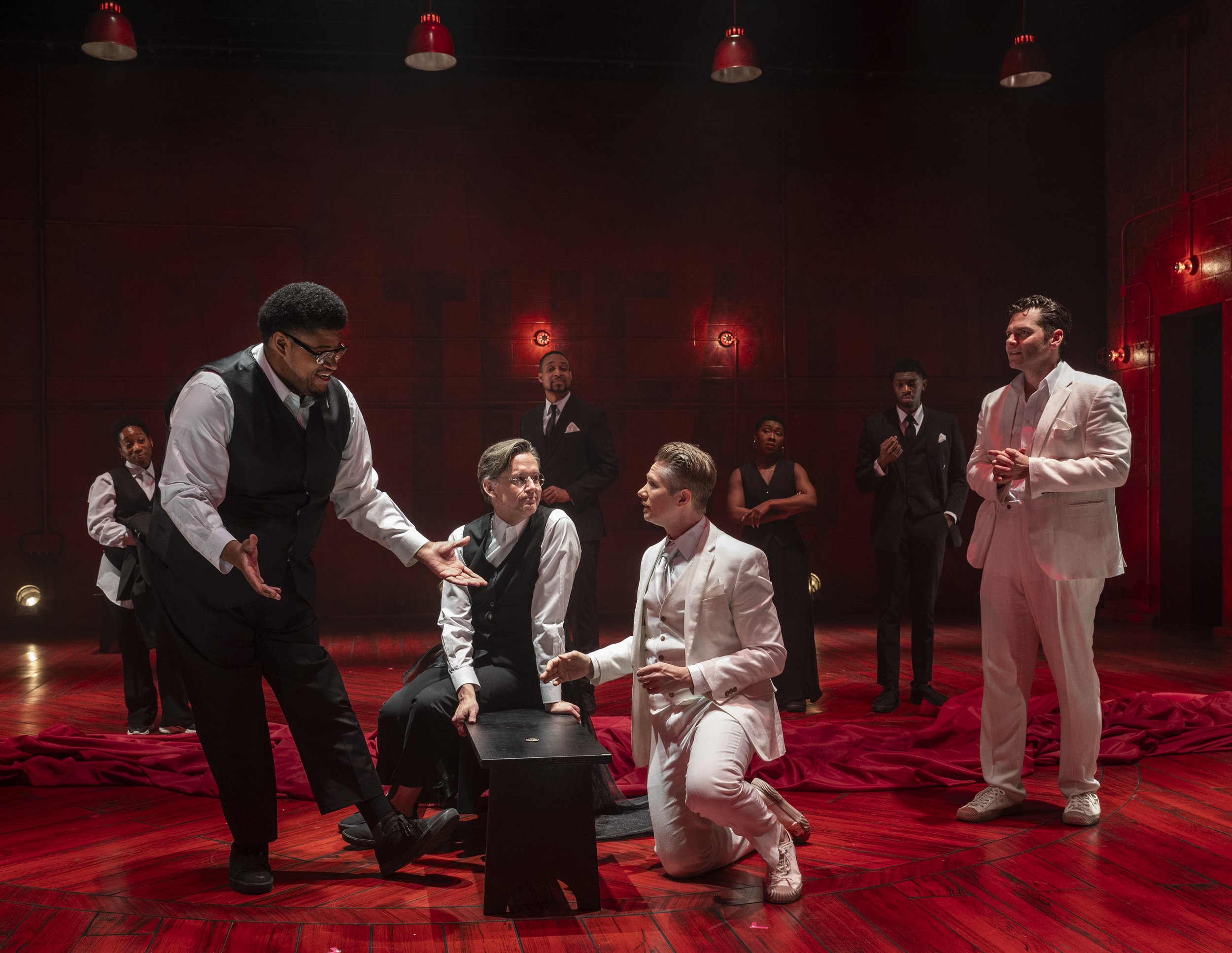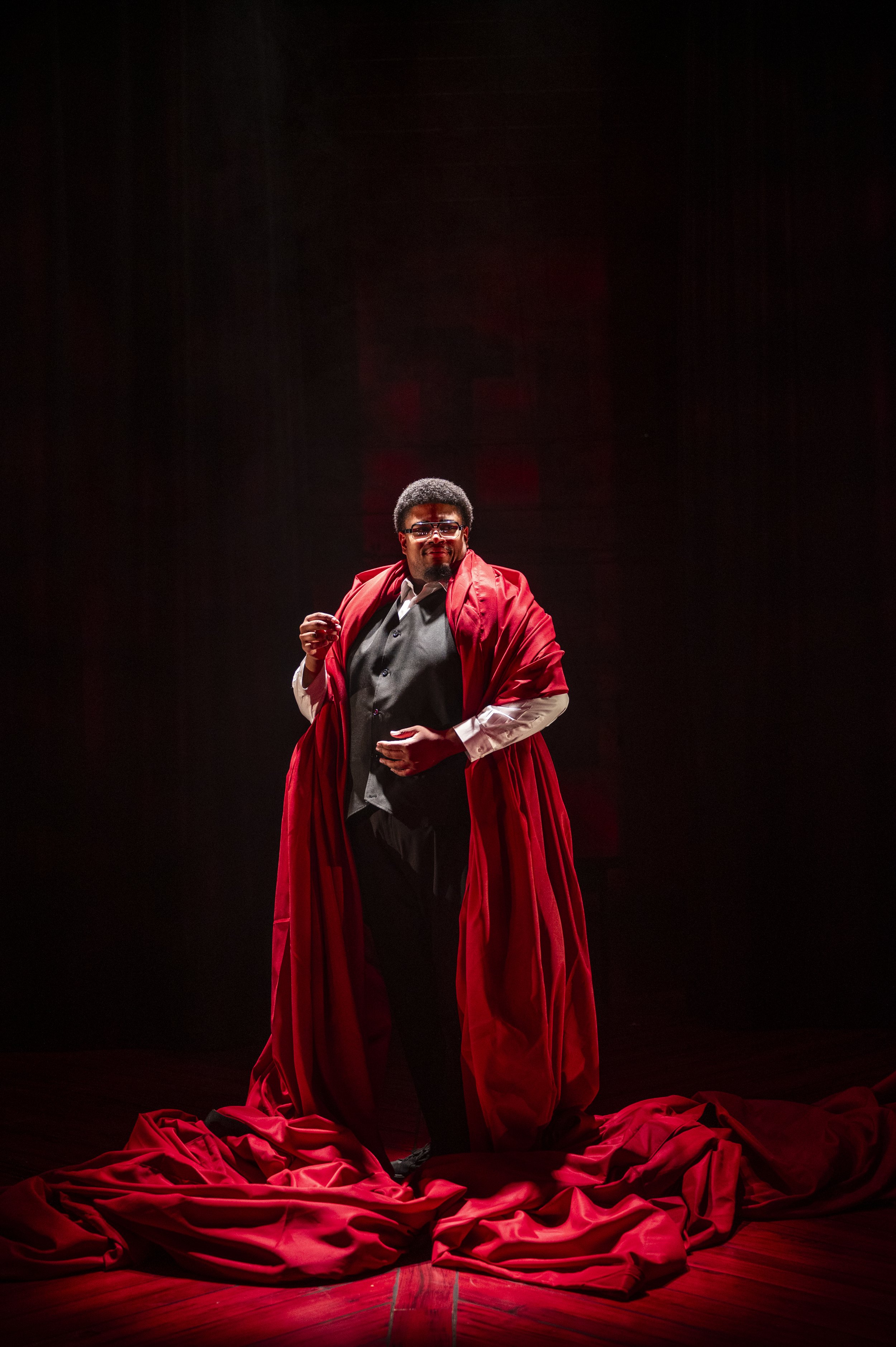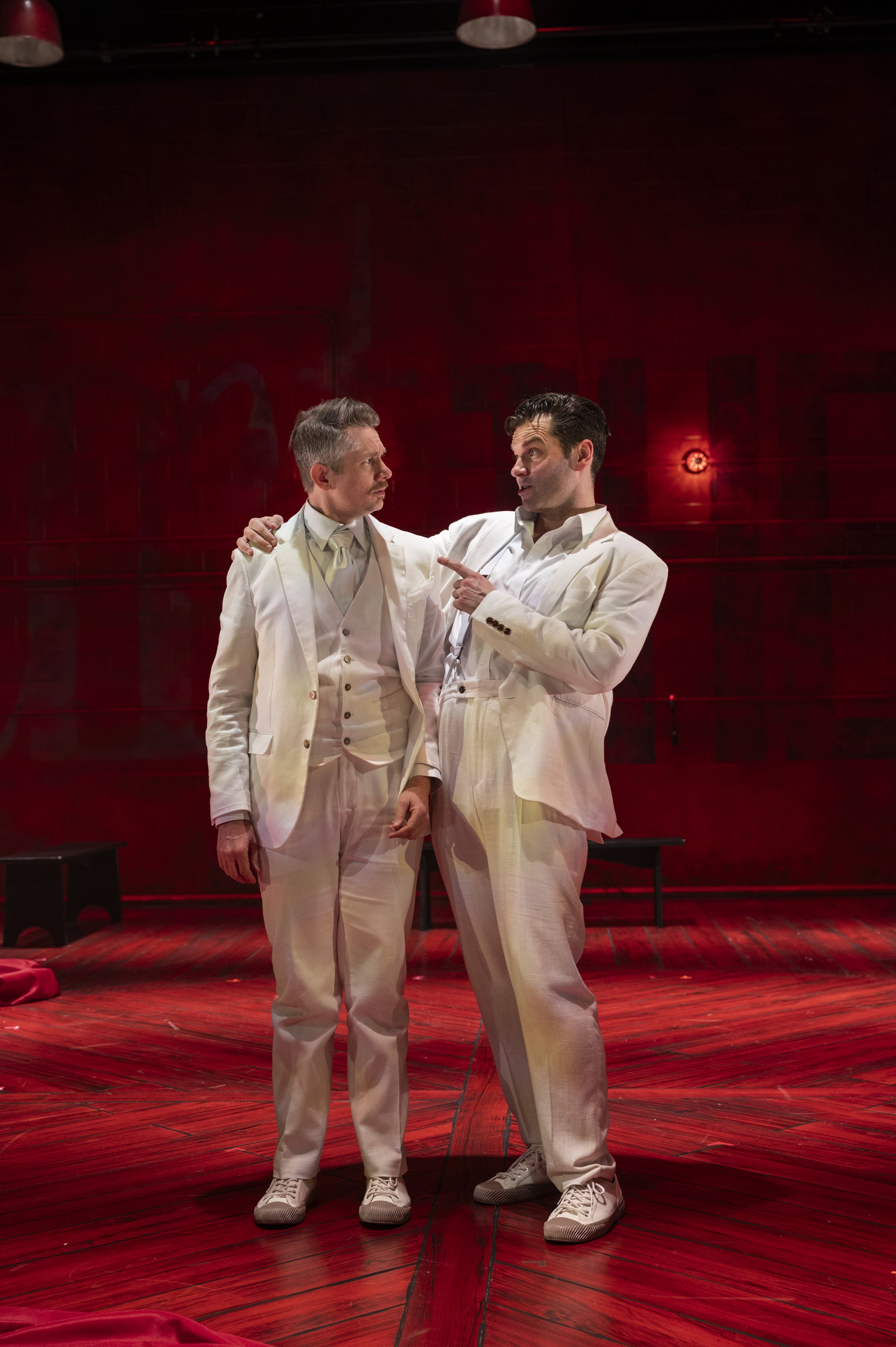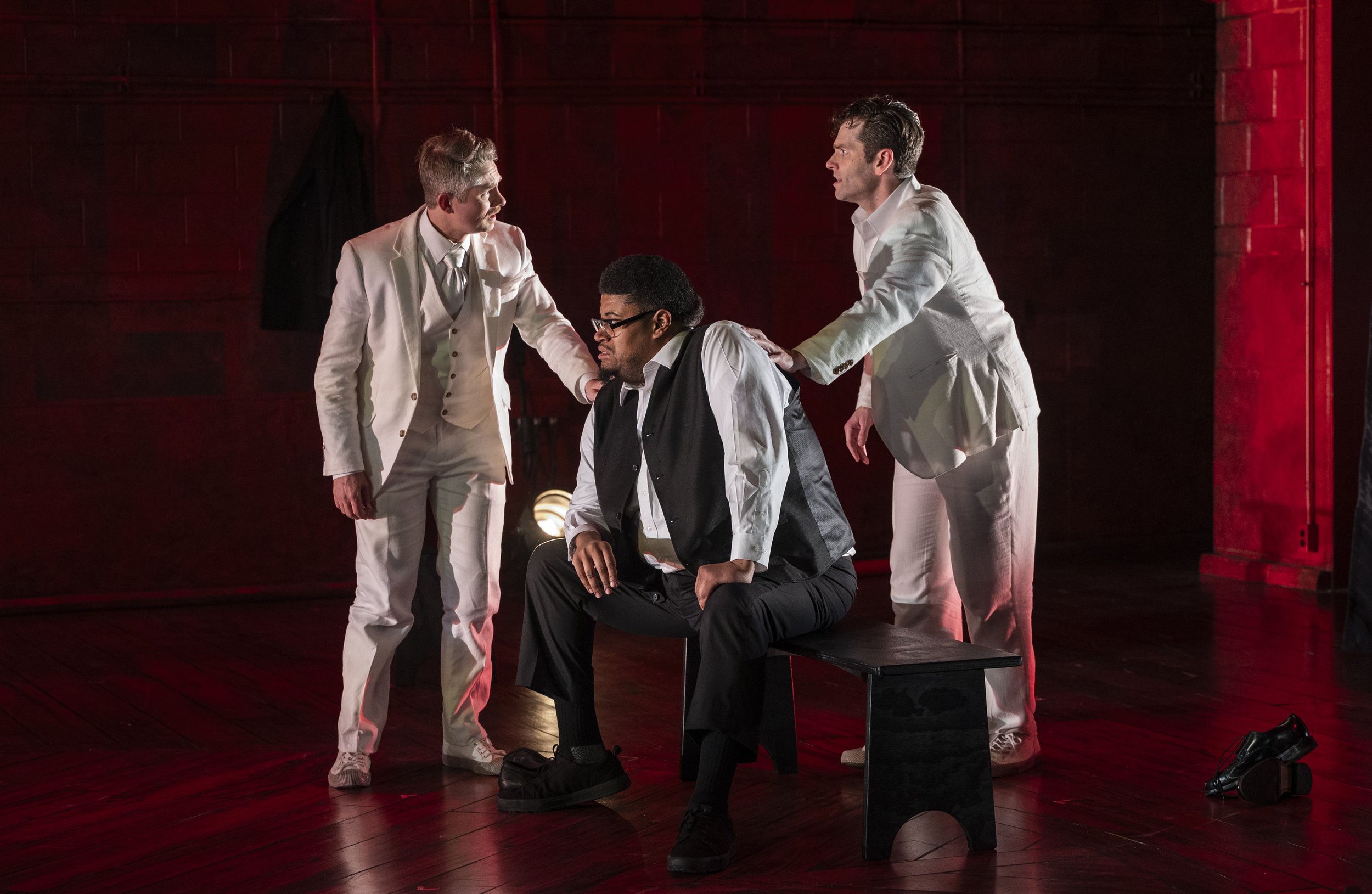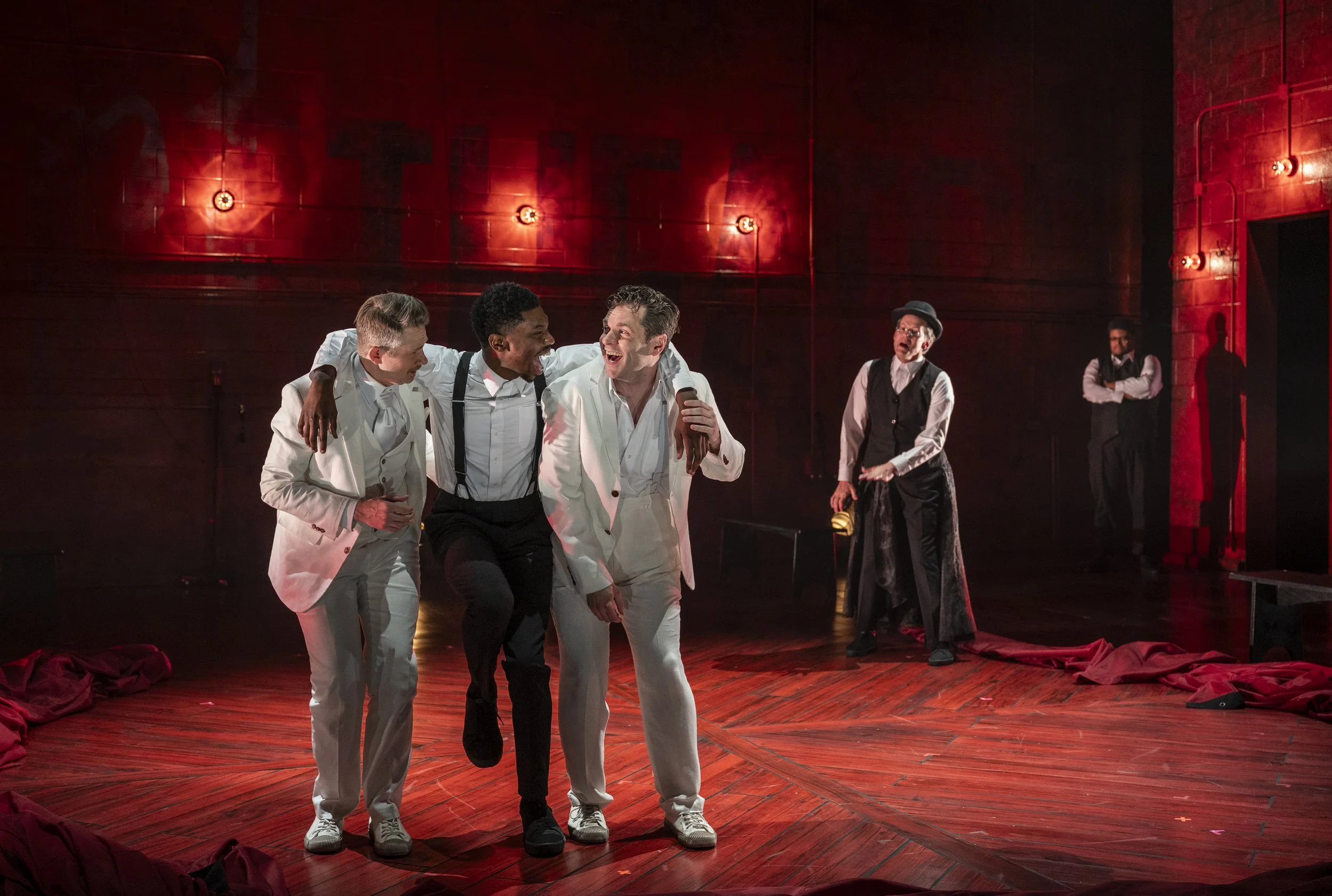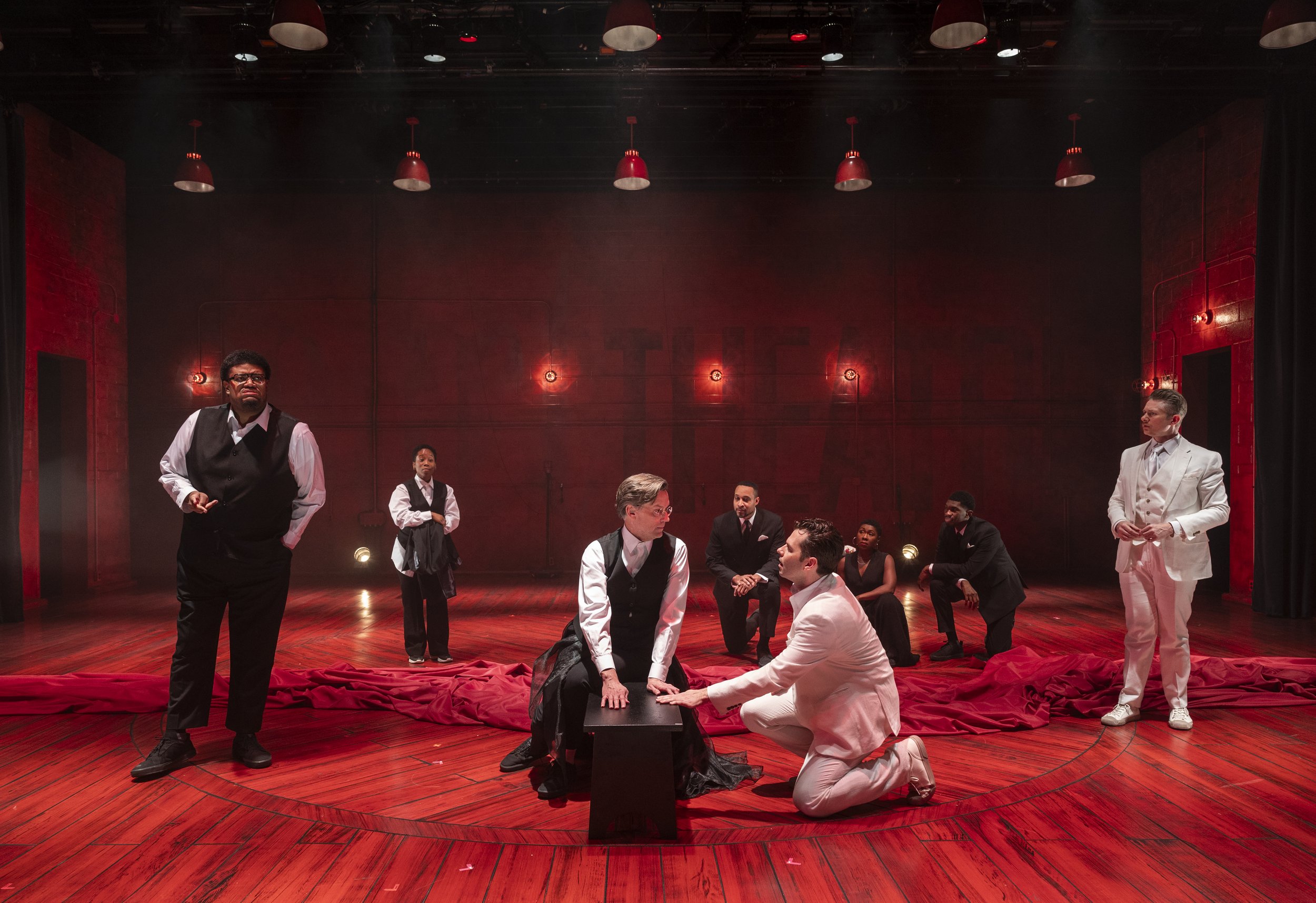Rosencrantz and Guildenstern Are Dead
British playwright and screenwriter Tom Stoppard, whose work primarily covered themes of human rights, censorship, and political freedom, pens this particular tragicomedy called Rosencrantz and Guildenstern are Dead. Based on a minor character in Shakespeare's Hamlet, Stoppard narrates society's mental struggles regarding the futility of life and death. Despite what the title suggests, the Protagonists Rosencrantz and Guildenstern are not dead. They are, however, reliving the timeline of their demise by witnessing it tragically performed by a group of traveling actors called the tragedians. They attempt to change the fates that have turned against them for merely following the King's orders. But first, they must understand why the call of obedience has judged them unfavorable and why a letter given to them by the King has been altered to seal their death. The title is taken directly from the final scene of Shakespeare's Hamlet. Rosencrantz and Guildenstern, seen as friends to Hamlet, are secretly spies for King Claudius to learn of Hamlet's madness. Claudius exiled Hamlet to England and wrote a letter to the King asking him to kill Hamlet once he landed in England. Hamlet learns of their deception and revises a letter meant for his death to command the death of his former friends, Rosencrantz and Guildenstern. Unbeknown to Rosencrantz and Guildenstern, Hamlet, seeking to learn if his uncle, King Claudius, has murdered his father, has the tragedians perform The Murder of Gonzago, also known as The Mousetrap. When those scenes are performed, Claudius becomes angry at the performers, and they have to escape onboard the ship, which happens to have two gentlemen traveling to England. The play emphasizes the meaning of life and death and what is happening in between. Is life futile? Is death the final stage play of life, and can you reenact death to understand its true meaning? Guildenstern denounces the belief that death onstage is equivalent to absolute death. And with the flip of a coin that shatters the laws of probability, it always seems to land on heads—the two struggle with how the consistency of the coin doesn't resemble the futility of our lives.
I enjoyed the chemistry of Nate Burger (Rosencrantz) and Erik Hellman as Guildenstern. Their 21st-century, quirky mannerisms were mesmerically humorous, similar to Laurel and Hardy, Abbott and Costello, and Lorenzo Rush Jr., who always performed well, gave another exceptional performance. I loved anything with a Shakespearian dialogue; however, Stoppard's play isn't for the casual theater enthusiast. There is a reason why this bleak, angst-rid·den dark comedy play isn't performed regularly. Stoppard's play is filled with bewildering, puzzling events and incomprehensible, confusing situations — that even the elite, aristocratic theater participant would struggle to comprehend. Sure, many have seen this production and tried the Titanic Approach of engaging others, seemingly with proper skills, collaborating on Stoppard's motifs while conversing about the play without genuinely knowing its premise. But why? What is the game of questions, where Rosencrantz and Guildenstern play to learn more about themselves, more confusing than intriguing? Why are pirates symbolizing a deus ex machina("god from the machine"), a plot device used in Greek and Roman theater to resolve complicated or hopeless situations, making me feel so hopeless to understand why it's part of this play? And why the traveling singers interacting with the main characters makes you feel like someone is constantly changing the television channel. And what is the message? Is kindness the failure of loyalty? Rosencrantz and Guildenstern learn that the letter is meant for Hamlet's death, and they perish trying to change the outcome. Should I consider that I should never interfere with the plight of others, which can turn into my own demise? That our choices are nothing more than a flip of a coin? Neither right nor wrong, whether just circumstantially being in the right or wrong places, knowing I have no chance of controlling my destiny? Some will say, maybe you just missed it. Well, that's the point. People shouldn't have to be theatrical with others, trying to understand theater.
The play has some intriguing insights about life and how blind trust and obedience can lead to tragedy while reminding us that "freedom is of a very limited nature." The ending has Rosencrantz glad that his tragic deliberation on his life is over and rejoices over his ending. At the same time, Guildenstern continues to deliberate whether there was ever an opportunity to prevent the regrettable reason that caused their death. An announcement is given that Claudius's orders and execution have been fulfilled. Rosencrantz and Guildenstern are dead. The play ends with singing, an unusual way to end an existential tragicomedy. Rosencrantz's anguish was that he felt they did nothing wrong, similar to the anguish I and others will think after seeing this play. I struggled to comprehend the central theme of this production without flipping a coin.
⭐⭐ 1/2 Stars
Court Theatre
Rosencrantz & Guildenstern Are Dead
By Tom Stoppard
Directed by Marilyn F. Vitale
Artistic Director Charles Newell
March 29 - April 21, 2024
Click on the logo above for tickets and below for additional reviews. Thanks for stopping by!

